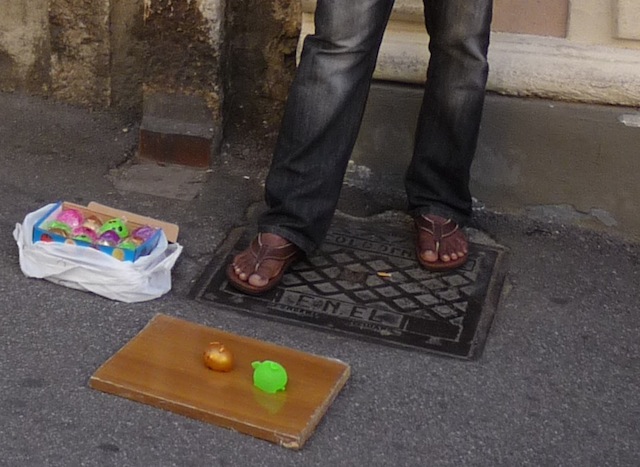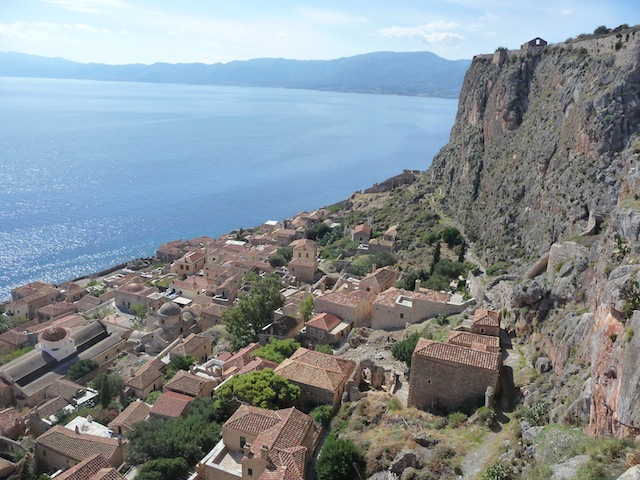Ron,
I enjoyed your original post, but thought it made a number of assumptions that were worth drawing out, and conclusions that were worth questioning. As the length was getting a bit much for the comment section, I appreciate you giving me the opportunity to explore this in a top-level post.
There seem to be three topics: taxes, the financial crisis (which started around 2008 but continues to this day), and exploitation. I'll address the first two in this post, and the third in a followup.
Taxes. You are correct to criticize the right/Republicans for their unthinking mantra that lower taxes will necessarily spur growth, and that higher taxes will retard it. There is some abstract truth to the Laffer Curve, the idea that, at some point, higher tax rates result in lower overall revenue. (And the converse, that, in certain circumstances, lower rates can actually increase revenue.) But I think the empirical evidence is clear that the current US marginal income tax rates are nowhere near this level.
I think you go too far to claim that it has been established that higher tax rates cause higher growth, and lower tax rates cause lower growth. That would be an astonishing result (despite the historical correlations, which you mentioned), and I think it is far from established, in the studies of the economic data. But perhaps that's a minor point, and we can let it go.
The financial crisis. The mainstream press layman's narrative of this is something like: in the 2000's, house prices kept rising. This was basically a Ponzi scheme, and people started buying houses that they knew they couldn't afford, but their plan was to finance the purchase with short-term teaser mortgage rates, and then flip the house at a higher price before their mortgage rate skyrocketed. This ended in 2007, when the musical chairs stopped, house prices stopped going up, and all the people who couldn't afford their houses suddenly got stuck and defaulted. And then contagion effects happened, because evil greed Wall Street bankers had collaterialized all these mortgages, and sliced them up, and there were systematic risks in the whole financial system that nobody appreciated. And suddenly Lehman Brothers went bankrupt, and then Bear Stearns, etc. And then all of a suddenly everything was under attack, the automotive companies were going bankrupt, unemployment doubled from 5% to 10%, and the world economy ground to a halt for the last five years.
A compelling narrative, about how evil, morally-corrupt people, took selfish risks with our valuable society. And many of them profited personally, as the collateral damage to the economy destroyed tremendous value for the rest of us. What a story! What a moral lesson. Karma has returned to balance. We angered God by being bad people, and he has now punished us for our misdeeds.
Only ... that story, while it has elements of truth, is basically not true. Oh, there are plenty of examples and anecdotes where such things happened, but it has almost nothing to do with the economic pain of the last five years of 9-10% unemployment.
And the problem is, since people want the simple, compelling narrative of evil selfish greedy bankers to blame, they focus on the wrong solutions in their attempt to fix this so we don't suffer this pain again in the future. For example, they focus on regulating bad financial behavior, in the hopes this will stop future greedy people from destroying the economy again.
The problem was not greedy selfish people. There were greedy selfish people decades ago, and there will be more decades from now. Capitalism is robust in the face of (and to some extent, relies on!) greedy selfish people. The problem was that, once the housing crisis started, the US Fed allowed nominal GDP to plummet (Sumner, Wilson, Sumner video, Sumner National Affairs paper).
So now you say that we agree, that maybe the Fed "exacerbated" the situation. That's an interesting choice of word, for the difference between a few-month downturn in one local industry (US residential housing), vs. a global five-year recession. The things to compare it to are the 1987 stock market crash (which had almost no impact on US GDP), and the 2000 dot-com crash (which destroyed tech companies for a few years, but again was hardly noticed in the huge overall US economy). The housing crash of 2007 could have been just another one of those, without the mismanagement by the Fed. That's a bit more severe than the word "exacerbated" suggests.
So now you want to get into what it means, philosophically, to "cause" something. I'll agree with you, that the subprime residential housing crash was the original spark. But it's like living in a dry forest, while somebody at a campfire plays with matches, and the professional firefighters that you've hired for this job are standing watch. Yeah, one of the matches got dropped in a bush. But this kind of minor, industry-local crisis happens all the time. That's why we have a US Fed, so that when a bush starts to spark, the professional firefighters who are standing right there, put it out.
Only, in 2008, they didn't. And they still haven't, for the last four years.
You're trying to eliminate all flames from the forest. Not only is that plan unlikely to be successful, but you're also ignoring all the collateral damage from no longer having access to fire. It's used to cook, to keep warm, to melt metal and make horseshoes and swords. It's incredible to me that you don't look at this situation, and reach the obvious conclusion of asking the professional firefighters: why didn't you put out that one tiny spark that happened right in front of your eyes? Why did you allow it to grow into a forest-wide wildfire?
Ron, you persist in your theory of the "obvious" housing bubble, that "obviously" needed to crash:
the resulting bubble in the housing market and rise in mortgage delinquencies was unsustainable (and this was evident in 2005). Something would have had to end it sooner or later, and it seems unlikely in the extreme that it could have been ended by anything other than a crisisBut again, seen through the eyes of NGDP, even this apparently non-controversial statement is probably false. A strong rise in asset prices does not always presage a bubble. "What goes up must come down" is a poor predictor of future prices. In housing, in particular, residential house prices in Canada, Britain, Australia and New Zealand followed much the same 2001-2005 path as US housing prices -- but then went flat after 2007, instead of crashing in value with the so-called "bubble" popping in the US.
Ron, you claimed an error of the economics profession (and evidence that economists shouldn't be trusted) was that
The economic consensus in 2005 was that everything was hunky dory.Yet you haven't distinguished conditions in the US, from those in Canada, Britain, Australia and New Zealand. In fact, the recent history of their housing sectors looked fairly similar -- but the performance of the overall economies from 2007-2012 has been very different.
Finally, you say
The Fed may well have exacerbated the situation with its too-tight monetary policy. I don't know, and we can never know for certain. Maybe the current crisis would have been averted. Or maybe we would have ended up with Weimar-Republic-style hyperinflation.You know the Fed has tools (e.g. the interest rate) to affect inflation. They can take steps to raise inflation while (sometimes) lowering unemployment, or other steps to lower inflation while (sometimes) raising unemployment.
Inflation is obviously a spectrum. For the last four years, it has been far too low, averaging 0-1% instead of 2-4%.
You seem to imagine the only possibilities as either too little inflation (the current state), or too much (hyperinflation). What makes it so hard to actually hit a target? You realize, I hope, that this is all the same spectrum. Even if hyperinflation was the eventual state, in order to get there from here, you'd first have to go through "just right" inflation. There is no other path. There is no way to jump from "too little" to "too much", without going through "just right".
So you seem to think that the Fed is not capable of hitting a target. That if they try to raise inflation a little, they'll just turn on a faucet and accidentally raise it too much. But of course, surely you know that they have tools to lower inflation also. So you must think that there's some "oversteering" problem, where the Fed would constantly apply too much of one direction or the other, but not have the fine control to hit a planned target?
I wonder why you think that's the case. Especially given that inflation has been incredibly stable for thirty years, starting around 1980, despite widely varying economic conditions. It sure seems like they have the tools to hit their desired target.








